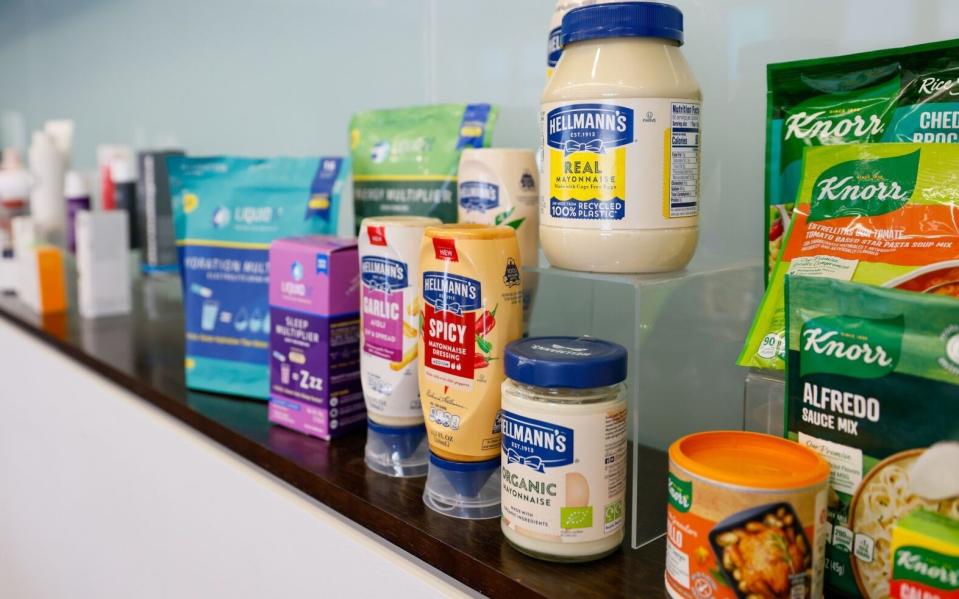Questor: Play the long game by investing in this consumer goods supplier

Unilever has been widely criticised for apparently focusing on social and environmental considerations, or “ESG”, instead of sales and profitability.
Under its current chief executive, who was appointed last July, it is now implementing a revised strategy which aims to simplify its operations, improve productivity and boost growth.
While this is a welcome development in Questor’s view, the company’s disappointing share price performance cannot solely be blamed on its strategy.
The company has faced a hugely challenging operating environment over recent years, with rampant inflation prompting a cost-of-living crisis that has encouraged consumers to trade down from its brands to cheaper alternatives.
When combined with an uncertain economic outlook caused by rapid interest rate rises, it is wholly unsurprising that the company’s shares have followed the same path as several other global consumer goods companies in lagging behind the FTSE 100’s performance.
Indeed, Unilever’s shares have fallen by 14pc, and underperformed the index by 30 percentage points, since our original buy recommendation in August 2019.
Even when dividends amounting to 13pc of our notional purchase price are taken into account, the stock’s total return stands at a thoroughly disappointing -1pc.
The good news for investors, though, is that the company’s operating outlook is finally poised to improve.
Inflation may be stickier than many commentators anticipated, but it is on track to fall to central bank targets over the coming months.
This should not only further ease the cost-of-living crisis, and even bring it to an end, but also prompt interest rate cuts that boost the world economy’s prospects. In turn, consumers are highly likely to spend more on the wide range of staple and discretionary items produced by Unilever.
Although the company’s latest trading update showed that underlying sales growth was a rather pedestrian 4.4pc in the first quarter, with modest growth of 3-5pc forecast for the full year alongside some improvement in profit margins, market forecasts suggest its bottom line will rise by around 7pc next year.

Furthermore, 58pc of the company’s sales are generated in emerging economies, where the IMF expects GDP growth to be in excess of 4pc in both the current year and next year.
This compares favourably with a growth rate of less than half that amount in advanced economies over the same period.
When combined with the company’s plans to spin off its ice cream business, which was its slowest growing segment in the latest quarter, and boost profitability through improved productivity, its financial outlook is highly encouraging.
In the meantime, Unilever’s solid balance sheet means it remains well placed to ride out any lingering economic challenges.
For example, its net finance costs were covered 20 times by operating profits in its latest financial year. And with a wide range of high-quality brands that equate to a strong competitive position – as evidenced by a return on equity figure that has averaged 36pc over the past three years – it remains a high-quality company despite the existence of seemingly perennial downbeat investor sentiment.
A weak share price performance, of course, means that the company’s €1.5bn (£1.29bn) share buyback programme, which follows a recently completed €3bn repurchase programme, is a thoroughly logical move.
While a price-to-earnings ratio of around 19.1 is by no means cheap, it nevertheless represents good value for money given the company’s long-term growth potential. Alongside a dividend yield of around 3.4pc, the stock’s total return prospects are highly appealing.
Clearly, implementing a revised strategy that seeks to create a leaner, more efficient and faster-growing business is always easier in theory than it is in practice. Moreover, it will take time for an improved company to emerge, with the separation of its ice cream business only expected to conclude by the end of 2025.
However, Questor firmly believes that Unilever deserves far more time to deliver on its potential.
It is still the same business in many regards as the one we first tipped, with an excellent stable of brands, a sound financial position and exposure to fast-growing economies.
Although its strategy has been questionable at times and, more pertinently, the company has experienced a hugely challenging operating environment, improvement is ahead on both counts.
Therefore, it remains a worthwhile purchase on a long-term view.
Questor says: buy
Ticker: ULVR
Share price at close: £42.89
Read the latest Questor column on telegraph.co.uk every Sunday, Monday, Tuesday, Wednesday and Thursday from 8pm.
Read Questor’s rules of investment before you follow our tips.


 Yahoo Finance
Yahoo Finance 